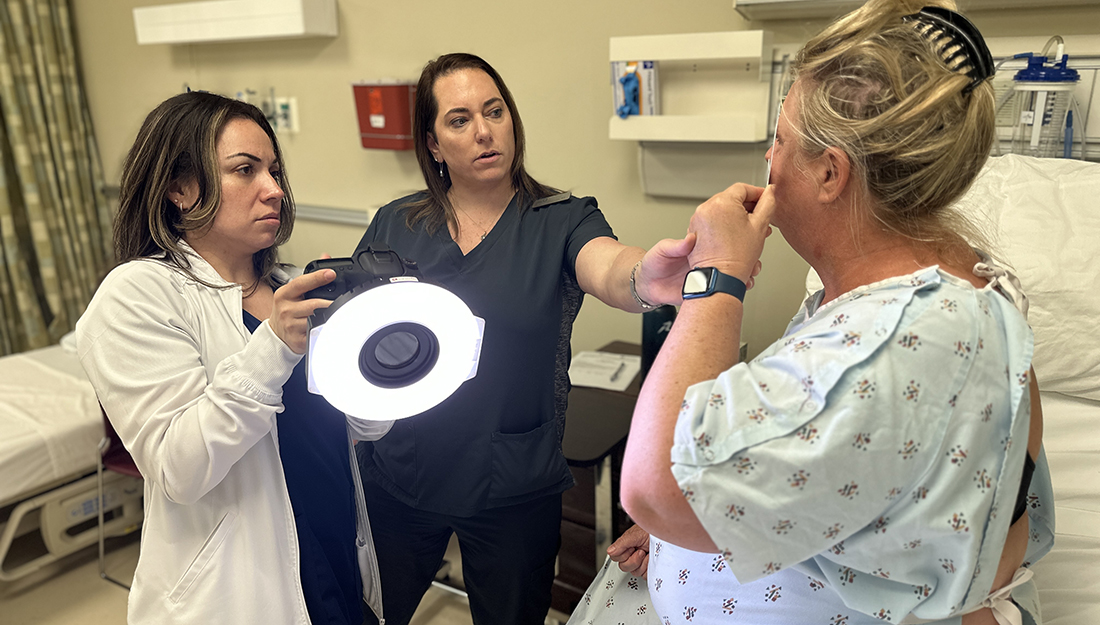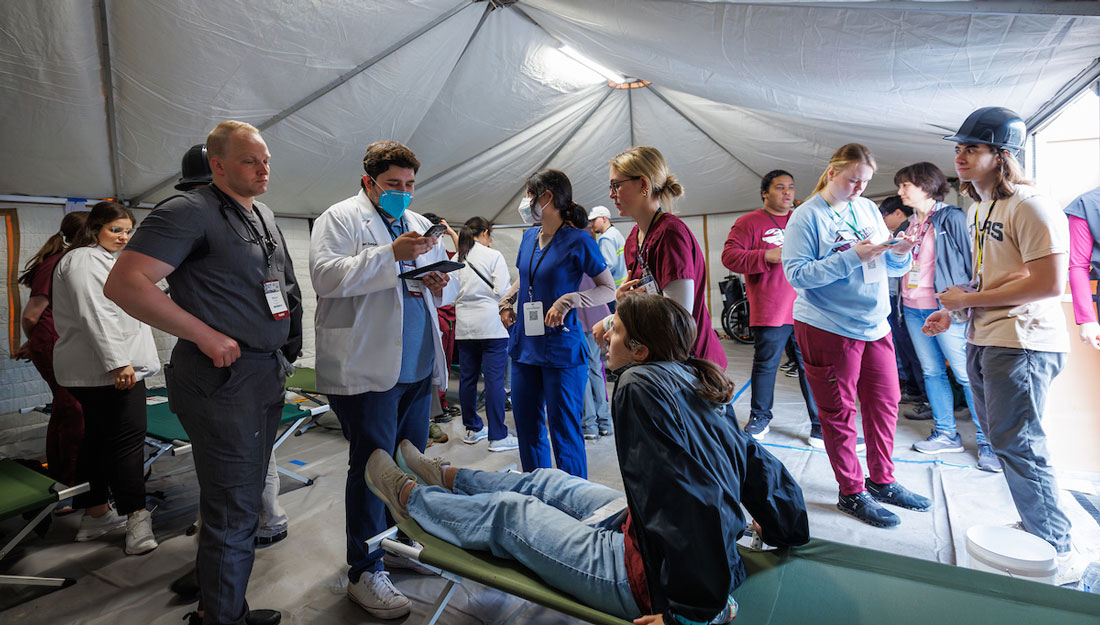- Shahd Arbab
- Community, Community Impact, Homepage Featured, Nursing, Show on VR homepage
Shining a light on sexual assault: The role of SANEs
Sexual assault nurse examiners provide compassionate, trauma-informed care to help survivors heal

The Texas A&M Center of Excellence in Forensic Nursing is working to train more sexual assault nurse examiners. (Kevin Zaragoza/Texas A&M Health Center of Excellence in Forensic Nursing)
April is Sexual Assault Awareness Month, a time to educate, advocate for and support survivors. But for the Texas A&M Health Center of Excellence in Forensic Nursing, that mission never stops. Recognizing the critical role of sexual assault nurse examiners (SANEs) in addressing sexual violence, the center is working to expand the number of trained professionals ready to serve communities across Texas and beyond.
A SANE is a registered nurse with specialized training in forensic examinations, trauma-informed care and evidence collection. They are often among the first medical professionals to support a survivor following an assault, providing crisis intervention, emotional support and referrals to mental health services, legal aid and advocacy programs. In many cases, SANEs also collect and preserve physical evidence that may be essential in criminal investigations and prosecutions.
“Sexual violence affects people of all ages, genders and backgrounds,” said Stacey Mitchell, DNP, director of the Center of Excellence in Forensic Nursing and a clinical professor at the Texas A&M University College of Nursing.
“Survivors of sexual violence often encounter significant barriers to seeking care—fear, shame, lack of access or not knowing where to turn,” Mitchell said. “SANEs play an essential role in breaking through those barriers, making sure survivors are met with compassion, clinical expertise and a path toward healing.”
Care at the bedside and beyond
Forensic examinations conducted by SANEs are designed to be patient centered. These nurses are trained to recognize the psychological impact of trauma, creating a safe and supportive environment for survivors during what is often a deeply vulnerable time.
Beyond the bedside, SANEs are vital to the justice system. Their meticulous documentation and court testimony can be instrumental in holding perpetrators accountable. They also collaborate with law enforcement, prosecutors and advocacy organizations to ensure a continuum of care and justice for survivors.
“In many cases, SANEs are the link between what happened to the survivor and how the justice system responds,” said Annetta Sipes, DNP, assistant director at the center who oversees its continuing education program. “Their training equips them to provide expert care and expert testimony—both of which are critical in achieving justice.”
Expanding access to critical SANE care
Becoming a certified SANE requires specialized continuing education in forensic nursing, hands-on training and, often, field mentorship.
“We don’t just train nurses to perform forensic exams; we train them to care, advocate and lead in communities that desperately need their skills,” said Laurie Charles, MSN, a clinical assistant professor at the College of Nursing. “Our approach emphasizes both clinical rigor and the human side of this work.”
To close those gaps rural and underserved areas, the center created the Texas Teleforensic Remote Assistance Center (Tex-TRAC), a statewide telehealth program that connects on-site clinicians in rural hospitals with experienced SANEs 24 hours a day. The center also offers mobile simulation education through a fully equipped RV, which allows participants to complete cases that may count toward initial Texas SANE certification or recertification.
As Sexual Assault Awareness Month calls attention to the resilience of survivors and the ongoing need to confront sexual violence, the role of SANEs—and the programs that support them—remains critical, according to Mitchell.
“SANEs are ensuring more survivors receive the care, dignity and justice they deserve,” she said.
Media contact: media@tamu.edu


